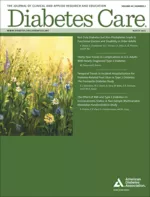Previous studies had shown that higher BMI and type 2 diabetes are associated with lower labor market opportunities, lower productivity, and higher absenteeism from work. This research project therefore aimed to investigate the causal effect between BMI and type 2 diabetes on household income and regional material and social disadvantage.
A multivariable two-sample approach with Mendelian randomization was used. Mendelian randomization is a method used in epidemiology and biostatistics for nonexperimental studies to determine the influence of modifiable risk factors on disease using variation in genes of known function.
"There have been a wide variety of previous studies on this research complex, but we are one of the first institutions to be able to determine a causal effect using Mendelian randomization," Prof. Laxy makes clear. "So a 'state of the art' method has been applied here!"
Overlapping genome-wide significant single nucleotide polymorphisms for BMI and type 2 diabetes were used as instrumental variables. The causal relationship was then assessed using data from the UK Biobank. The UK Biobank is a long-term British study examining contributions of genetic predisposition and environmental exposure to disease development.
The research team led by first author Sara Pedron, a Research Associate at the Assistant Professorship of Public Health and Prevention, found that higher BMI was associated with lower household income as well as higher regional disadvantage. Type 2 diabetes, however, had no effect on socioeconomic status.
"The results for body mass index are actually very robust and interesting, which is why they are already being discussed a lot, especially in clinical practice," explains Pedron. "However, the results for type 2 diabetes should be taken with a grain of salt. We had expected to see an effect in type 2 diabetes as well, since we were able to detect it before in other reviews as well. However, this may be due to methodological reasons. The genetic tools we used have low explanatory power for type 2 diabetes, so we will now test this result in the next studies."


